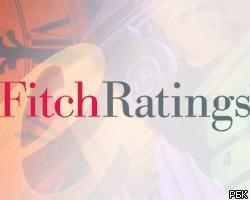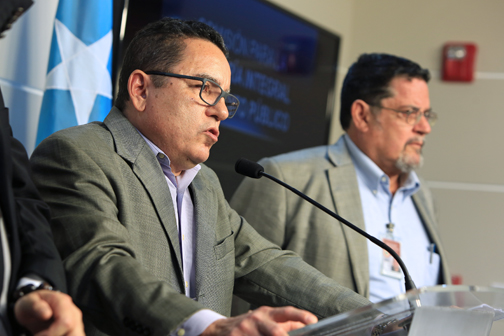Fitch: Keeping Puerto Rico’s rating will depend on policymaking

 Fitch Ratings, the only credit agency that has not downgraded Puerto Rico’s debt in the past week, said Tuesday the current ‘BBB+’ rating on the Commonwealth’s general obligation bonds reflects the significant progress made by the outgoing administration in implementing widespread reforms despite economic underperformance.
Fitch Ratings, the only credit agency that has not downgraded Puerto Rico’s debt in the past week, said Tuesday the current ‘BBB+’ rating on the Commonwealth’s general obligation bonds reflects the significant progress made by the outgoing administration in implementing widespread reforms despite economic underperformance.
However, keeping the rating intact will require policy decisions by the incoming Gov. Alejandro García-Padilla’s administration that keep up the progress and achieve budget balance and a slowing in the growth of long-term liabilities, including passing significant pension reform.
“The weak pace of economic growth makes reaching these goals more challenging. The change in administration following the November 2012 election has not in and of itself caused Fitch to reconsider Puerto Rico’s general obligation and related bond ratings; however, initiatives by the new administration will be monitored to assess the direction of policy as it evolves and any implications for the financial stability of the commonwealth,” the agency said in a statement issued late in the day.
Over the past week both Moody’s Investor Service and Standard & Poor’s have downgraded Puerto Rico’s credit ratings, affecting the island’s GO bonds as well as debt held by the Puerto Rico Electric Power authority and the University of Puerto Rico.
In its assessment, Fitch said despite Puerto Rico’s progress, attaining fiscal balance has been and remains a challenge.
“Structural budget balance has not yet been reached despite four years of aggressive cost cutting and other fiscal restructuring measures. The outgoing administration made significant progress in reducing the operating deficit from 47 percent of general fund revenues in fiscal 2009 to 3.8 percent in fiscal 2013, excluding the additional impact of debt restructuring for fiscal relief,” Fitch said.
“Maintenance of the current rating will be contingent upon meeting current year budget estimates, which included some borrowing to balance, and enacting a budget for fiscal 2014 that does not rely on borrowing to achieve balance beyond some limited ongoing refunding,” the agency noted.
Fitch also addressed Puerto Rico’s underfunded retirement systems and high bonded debt levels, which it said will limit the island’s ability to “use additional leveraging for capital improvements or as a budget solution and create spending pressures that will be difficult to absorb within slowly growing revenues.”
The commonwealth’s ability to take action that supports the pension system’s solvency while not significantly increasing the demands that pensions place on the budget will be critical to long-term rating stability, the agency said.
The agency also pointed out that the government’s historic tradition of borrowing to fund its operations, although reduced, “introduces risk to operations and increases the already high debt burden.”
“Fitch will be looking to the use of sustainable solutions to balancing the fiscal 2014 budget rather than reliance on capital market solutions,” it noted.
Looking ahead, Fitch said it will be keeping tabs on how the island gains “traction” as it begins to pull out of a protracted recession. Specifically, the agency will watch closely at the strategy the island will implement to “grow and diversify its economy, increase employment and workforce participation levels, enhance wealth and income, and address contraction in its existing pharmaceutical and electronic producing industries.”
“The ultimate test of the success of future policy will be whether or not Puerto Rico is able to find a sustainable path to economic growth, growth that is necessary to support the commonwealth’s high debt levels and other long-term liabilities, as well as to maintain a structurally balanced budget going forward,” Fitch concluded.








